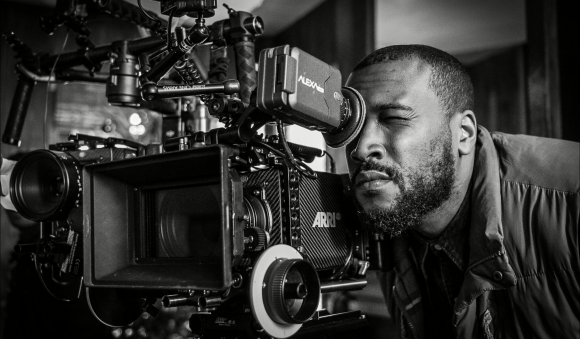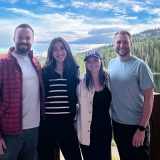Cards On The Table with Netflix Director Marcus A. Clarke
September 23, 2021

Last Thursday, Professor Leah Aldridge had the opportunity to host a conversation open to all Dodge Students with filmmaker Marcus A. Clarke, discussing his Netflix Original Documentary Blood Brothers: Malcolm X & Muhammad Ali.
For Clarke, the journey of making this film was one that he was ready to take on.
“The journey was deeply spiritual and personal,” said Clarke.
“Everything I’ve done I feel like in a way has led me up to being prepared for this moment. If I had gotten this film at any other time in my career, I would not have been ready to make this film. It would have been too early.”
Clarke first got his start in the film industry working in commercials as an intern and production assistant. During that time he learned how the film process worked by observing the production process on set and listening to the conversations that the crew was having.
From there he worked his way up to production manager, to producer, to first assistant director, and eventually to director. He then transitioned from working in commercials to documentary and television.
“I really have a good understanding of production in general,” said Clarke, about his experience working in so many different roles.
When the time came to step into the role as director of Blood Brothers, Clarke was confident he was the one for the job.
“When I walked into that room, I was not nervous. I knew what I needed to say, I knew what I needed to get across and what I wanted to get across,” said Clarke.
During the zoom conversation, Clarke also opened up about how through the making of this film, he was able to gain a deeper sense of self understanding and infuse some of his own culture and heritage into the documentary.
“If I’m in a position to be able to build in messaging through the music and some of the things we’re doing in the film, that’s my job as a filmmaker and as a black filmmaker,” said Clarke.
He also emphasized the importance of honesty and being fully transparent about one’s intentions throughout the documentary process.
In order to establish a connection with people they were interested in interviewing for the film, Clarke and his team would have hour-long phone calls where they laid out who they were, what their intentions were, and what they were looking for as a contribution to the film in order to see if people were interested.
“My advice, especially in the documentary world, is to be honest, to be transparent about your intention and how you are going to use the material and what you want to accomplish,” said Clarke.
He explained how creating a sense of trust and connection with the person that you are interviewing can make the difference between whether or not they are willing to share a key piece of information that can elevate your story.
“The things that you hear that might be the most interesting, or the most explosive, they don’t happen in the first thirty minutes, they happen in the last ten minutes,” said Clarke.
“It’s a process, and trust is a really important part of the process when you’re doing a documentary.”
Blood Brothers: Malcolm X & Muhammad Ali is now streaming on Netflix!


